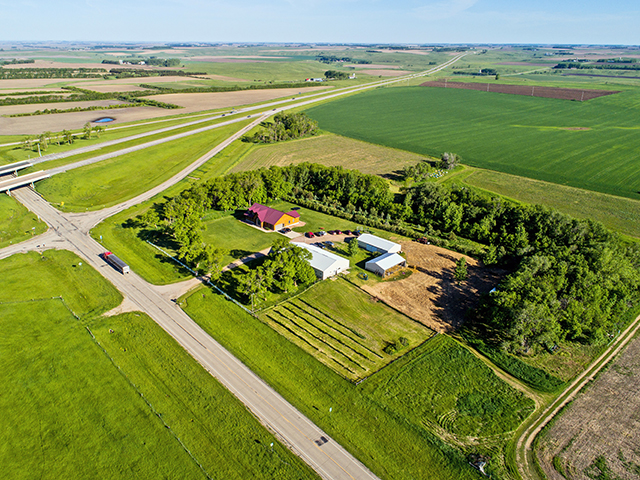Businesslink
Start-Ups Offer New Way To Invest in Farmland
Farmers and ranchers have understood the value of farmland since the U.S. opened wide swaths of the plains for homesteading. But, in the last century, and truly within the past couple of decades, farmland has transformed into an investment.
While farmers remain the top bidders and buyers at auctions and sales across the country, investors are still a part of the picture. Most recently, Bill Gates may come to mind, but newer, more creative approaches make farmland investments more accessible to young urban professionals and other retail investors.
Unlike real estate investment trusts, which offer more diversified portfolios and are often traded on an exchange, several start-up companies have begun buying farms and offering retail investors the opportunity to buy a share of an operation. While many focus on specialty crops, they're in the commodity space, too.
P[L1] D[0x0] M[300x250] OOP[F] ADUNIT[] T[]
For example, a company called FarmTogether closed what it called the "largest single-asset crowdfunded farmland investment to date" in March. It's a 201-acre organic apple orchard in Washington state for $22 million. It plans to replant the orchard with two organic apple varieties and includes an operating deal with Stemilt Growers, one of the largest tree fruit growing, packing and shipping companies in the state.
Another company, AcreTrader, recently advertised a 270-acre farm in the Missouri Bootheel that historically grows soybeans and cotton. It requires a minimum investment of $23,250 that must be held for a certain amount of time. According to a University of Missouri Extension survey, the average price for average-quality farmland in the Bootheel is $5,835.
While I doubt this business model will revolutionize the farmland market, especially with corn and soybean prices where they are, I think it bears watching. It appeals to the growing number of sustainability-conscious investors, as well as those who would love to own a piece of what they can't afford to own outright. After a volatile year in the stock market, I'm sure there are plenty who'd welcome farmland's relative stability. By removing the high cost of entry and management responsibilities, it makes investing in farmland easier and more accessible, which is often the first step toward popularity.
**
-- Read Katie's business blog at about.dtnpf.com/business.
-- You may email Katie at katie.dehlinger@dtn.com, or visit
@KatieD_DTN on Twitter.
[PF_0521]
(c) Copyright 2021 DTN, LLC. All rights reserved.




